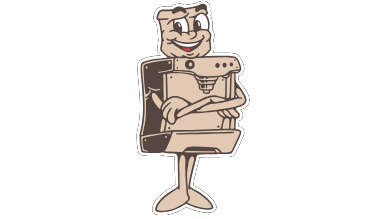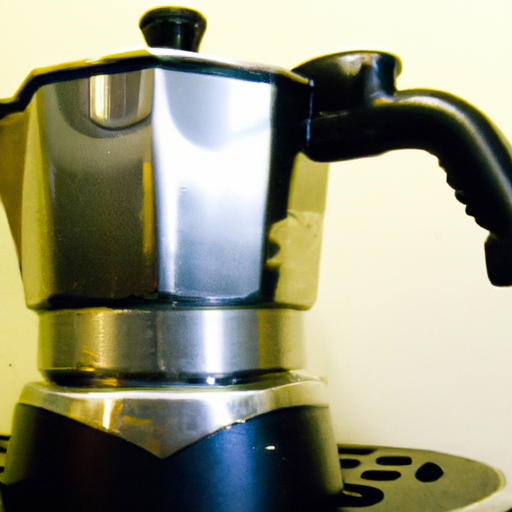If you’re a coffee enthusiast, chances are you’ve found yourself pondering the eternal question: are manual coffee makers better than electric ones? In the pursuit of that perfect cup of joe, it’s essential to consider the intricacies of the brewing process. While electric coffee makers offer convenience and speed, manual coffee makers provide a unique hands-on experience that allows you to control every aspect of your brew. So, let’s take a closer look at the debate and explore the pros and cons of each option. Get ready to embark on a journey through the world of coffee brewing as we dive into the age-old discussion of manual versus electric coffee makers.
Cost
Lower upfront cost of manual coffee makers
When it comes to cost, one major advantage of manual coffee makers is their lower upfront price compared to electric coffee makers. Manual coffee makers, such as French presses or pour-over drippers, tend to be more affordable options for those on a budget or who are just starting out in the world of coffee brewing. These manual coffee makers can be found at various price points, allowing you to choose one that fits your budget.
Electric coffee makers may have higher long-term costs
While manual coffee makers may have a lower upfront cost, it is important to consider the long-term costs associated with electric coffee makers. Electric coffee makers often require specific coffee pods or filters, which can become an ongoing expense. Additionally, electricity usage should be taken into account when considering the long-term costs of an electric coffee maker.
Factors to consider for cost-effectiveness
When deciding between manual and electric coffee makers, it’s crucial to consider factors like your budget, frequency of use, and the cost of consumables. While manual coffee makers may offer a lower upfront cost, electric coffee makers might be more cost-effective in the long run if you frequently brew coffee and are willing to invest in compatible pods or filters.
Brewing Control
Manual coffee makers offer more control over the brewing process
If you are someone who enjoys having control over every aspect of your coffee brewing process, then manual coffee makers are the way to go. These coffee makers allow you to customize variables such as water temperature, brew time, and coffee-to-water ratio, giving you the ability to experiment and fine-tune your brew to match your preferences.
Electric coffee makers may have limited brewing options
On the other hand, electric coffee makers typically come with pre-programmed settings and limited brewing options. While they offer convenience, they may not provide the same level of control as manual coffee makers. Electric coffee makers often have preset brew settings that cannot be adjusted, which may not satisfy those who crave a more hands-on approach to brewing their coffee.
Factors to consider for brewing control
Consider your personal preference for control over the brewing process. If you enjoy experimenting and tweaking variables to achieve the perfect cup of coffee, a manual coffee maker would be a great choice. However, if you prefer a more straightforward and consistent brewing experience, then an electric coffee maker might better suit your needs.
Brewing Time
Electric coffee makers offer faster brewing times
For those who are constantly on the go or prefer a quick cup of coffee in the mornings, electric coffee makers are the clear winner in terms of brewing time. With just the push of a button, electric coffee makers can deliver a hot cup of coffee within minutes, allowing you to save time and effortlessly enjoy your morning routine.
Manual coffee makers require more time and effort
On the other hand, manual coffee makers typically require more time and effort to brew a cup of coffee. Methods like pour-over or French press brewing involve a manual process of boiling water, grinding coffee beans, and carefully pouring water over the coffee grounds. While this process might be enjoyable and meditative for some, it may not be ideal for those who are looking for a quick and convenient brewing experience.
Factors to consider for brewing time
When considering brewing time, it’s essential to evaluate your daily schedule and how much time you can dedicate to coffee brewing. If you prioritize efficiency and need your coffee ready in a matter of minutes, an electric coffee maker would be the better choice. However, if you have the luxury of time and enjoy the process of manual brewing, then a manual coffee maker can provide a more hands-on and deliberate coffee experience.
Portability
Manual coffee makers are generally more portable
For coffee lovers on the move or who enjoy having a cup of joe while camping or traveling, manual coffee makers offer excellent portability. Being compact and lightweight, manual coffee makers like AeroPress or portable pour-over drippers can easily fit in a bag or backpack, allowing you to enjoy a freshly brewed cup of coffee wherever you go, regardless of the availability of electricity or a power source.
Electric coffee makers require a power source
Unlike manual coffee makers, electric coffee makers require a power source to operate effectively. This limitation makes them less suitable for on-the-go brewing or situations where access to electricity is not readily available. Traveling with an electric coffee maker would require access to power outlets or the use of adapters, adding an extra layer of complexity to your coffee routine.
Factors to consider for portability
Consider your lifestyle and coffee habits when deciding between a manual or electric coffee maker. If you frequently find yourself on the move or enjoy the flexibility of brewing coffee in various settings, a manual coffee maker’s portability makes it a more practical choice. However, if most of your coffee brewing occurs at home or in places with a stable power supply, an electric coffee maker could still be a suitable option.
Ease of Use
Electric coffee makers are generally easier to use
When it comes to ease of use, electric coffee makers are generally more user-friendly and straightforward. With just a few buttons to press and pre-programmed settings, anyone can quickly learn to operate an electric coffee maker. These machines often come with clear instructions and intuitive controls, making the brewing process simple and convenient.
Manual coffee makers require more skill and attention
In contrast, manual coffee makers require a bit more skill and attention to detail. Brewing coffee manually involves carefully measuring and controlling various variables, such as water temperature and pour rate. It may take some practice to get the hang of using manual coffee makers correctly and consistently produce a great cup of coffee.
Factors to consider for ease of use
Consider your comfort level with manual tasks and your willingness to dedicate time to learn and perfect the brewing techniques associated with manual coffee makers. If you prefer a hands-off approach and value convenience above all else, an electric coffee maker would be the better choice. However, if you enjoy the process of learning and refining your coffee brewing skills, a manual coffee maker can provide a more engaging and rewarding experience.
Brewing Capacity
Electric coffee makers often have larger brewing capacity
For individuals or households where multiple cups of coffee are needed simultaneously, electric coffee makers often offer a larger brewing capacity. These machines can typically brew a greater quantity of coffee in a single cycle, making them suitable for serving groups of people or accommodating those with a higher coffee consumption.
Manual coffee makers are typically designed for single servings
In contrast, manual coffee makers are generally designed for brewing single servings of coffee. Methods like pour-over or AeroPress are geared towards producing a single cup, which is ideal for those who prefer to savor their coffee one serving at a time or prefer the flexibility to customize each cup to their liking.
Factors to consider for brewing capacity
Think about the number of people you typically brew coffee for and your individual coffee consumption. If you frequently have guests or need to make multiple cups at once, an electric coffee maker with a larger brewing capacity would be more suitable. However, if you prefer a more intimate coffee experience or typically only brew for yourself, a manual coffee maker’s single-serving capacity may be a perfect fit.
Durability
Manual coffee makers are often more durable
In terms of durability, manual coffee makers tend to have the upper hand. These coffee makers are often made from sturdy materials such as stainless steel, glass, or ceramic, which are less prone to damage. With proper care, manual coffee makers can last for years and withstand the test of time, making them a more reliable investment.
Electric coffee makers may have more components that can break
Electric coffee makers, on the other hand, are often more complex in design and can have more components that may be susceptible to wear and tear over time. These machines rely on electronic parts and mechanisms, which can be more prone to malfunction or breakage compared to the simpler design of manual coffee makers.
Factors to consider for durability
Consider your desired coffee maker’s lifespan and your willingness to invest in regular maintenance or occasional repairs. If you prioritize long-term durability and reliability, a manual coffee maker’s sturdy construction may be the better choice. However, if you are comfortable with the possibility of having to replace components or repair an electric coffee maker periodically, it may still be a viable option for you.
Energy Efficiency
Manual coffee makers are more energy efficient
When it comes to energy efficiency, manual coffee makers have the clear advantage. These coffee makers require no electricity, relying solely on manual labor and heat sources like boiling water separately. By eliminating the need for electricity, manual coffee makers significantly reduce energy consumption and are the greener choice for eco-conscious individuals.
Electric coffee makers consume electricity
Electric coffee makers, on the other hand, rely heavily on electricity to power the heating element, brewing mechanism, and other functionalities. This usage contributes to increased energy consumption, which can have a negative impact on both your electricity bill and the environment.
Factors to consider for energy efficiency
Consider your commitment to reducing energy consumption and minimizing your carbon footprint. If eco-friendliness is a priority for you, a manual coffee maker’s energy efficiency makes it the more sustainable option. However, if energy consumption is not a significant concern or if you value the convenience and time-savings provided by an electric coffee maker, this aspect may not be a deciding factor for you.
Cleaning and Maintenance
Electric coffee makers are often easier to clean
In terms of cleaning and maintenance, electric coffee makers typically have the advantage of being easier to clean. Many electric coffee makers come with detachable and dishwasher-safe parts, making the cleaning process simple and convenient. Some models even have self-cleaning functions, further reducing the effort required to maintain them.
Manual coffee makers require more maintenance
Manual coffee makers, on the other hand, often require more hands-on maintenance. Depending on the specific type of manual coffee maker, you may need to disassemble and hand wash different components or use specific cleaning tools to remove residue and coffee grounds. Manual coffee makers also require regular descaling to remove mineral buildup from the brewing equipment.
Factors to consider for cleaning and maintenance
Consider your willingness to dedicate time and effort to clean and maintain your coffee maker. If easy cleanup and low maintenance are essential factors for you, an electric coffee maker’s convenience in this regard may be more preferable. However, if you enjoy the process of meticulously cleaning and caring for your coffee equipment or are willing to invest the extra time in manual coffee maker maintenance, then it might not be a significant concern for you.
Taste and Flavor
Manual coffee makers can produce more flavorful coffee
When it comes to taste and flavor, many coffee enthusiasts argue that manual coffee makers have an edge over electric coffee makers. The manual brewing process allows for more control over variables such as water temperature, brewing time, and coffee-to-water ratio, resulting in a more personalized and potentially more flavorful cup of coffee.
Electric coffee makers may result in less flavorful coffee
Electric coffee makers, while convenient, may not provide the same level of control over the brewing process. These machines often have pre-programmed settings that may not allow for customization, potentially resulting in coffee that lacks the same depth and complexity of flavor as coffee brewed manually.
Factors to consider for taste and flavor
Consider your personal taste preferences and the importance of flavor nuances in your coffee. If you appreciate the art and science behind brewing coffee and want to savor all the intricate flavors and aromas, a manual coffee maker can provide a more fulfilling experience. However, if you prioritize convenience and are satisfied with a consistently good cup of coffee, an electric coffee maker may still meet your needs.
In conclusion, the decision between manual and electric coffee makers ultimately depends on your personal preferences and priorities. Consider factors such as cost, brewing control, brewing time, portability, ease of use, brewing capacity, durability, energy efficiency, cleaning and maintenance, and taste and flavor. By evaluating these aspects, you can determine which coffee maker aligns best with your lifestyle, budget, and desired coffee experience. Remember, no matter which type of coffee maker you choose, the end goal remains the same – to enjoy a delicious cup of coffee.




